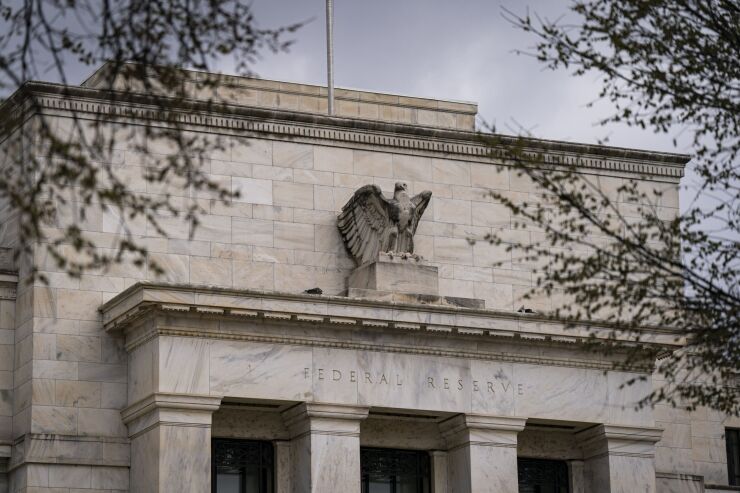
The Federal Reserve Board has issued a
The Fed cited the Lenexa, Kansas-based Small Business Bank and its holding company, Gardner Bancshares, for issues related to staffing; internal controls; credit risk management; lending and credit administration; capital; information technology and information security; books and records; regulatory reporting; liquidity and funds management; earnings; interest rate risk management; third-party risk management; as well as oversight issues related to
The shortcomings outlined in the order were identified during the bank's most recent examination by state and federal supervisors on Oct. 31, 2022, according to the enforcement action, which was dated on Sept. 1 but made public Tuesday.
In the enforcement action, regulators called for Gardner Bancshares to provide Small Business Bank's board of directors with "adequate resources" to police the bank on its various supervisory shortcomings. They also note that officers and staff at the banks should possess the "requisite qualifications, skills, and training to competently perform present and anticipated duties."
Small Business Bank is a $100 million-asset institution that specializes in serving small and "micro" businesses, as well as offering checking and high-yield savings accounts and business debit cards.
The bank was established in 1984 as Gardner National Bank before changing its name to Gardner Bank in 2009 and then to Small Business Bank in 2016. It is a state-chartered member bank of the Federal Reserve, making the Fed its primary federal regulator.
As part of the order — to which Gardner Bancshares and Small Business Bank consented — the bank and holding company have agreed not to declare or pay any dividends without first getting approval from the Fed, the Federal Reserve Bank of Kansas City and the Kansas Office of the State Bank Commissioner.
They also must compile various plans for improving performance. These include plans for board oversight, capital, liquidity management, internal controls, information-technology security and BSA/AML compliance, all of which are due in 60 days. The bank and its holding company also have 30 days to hire a third party to assess "corporate governance, board and management structure, and staffing needs."
During the next four months, the bank will also have to review its loan book, devise a plan for improving its administration of loans and credit as well as come up with a strategy for mitigating various distressed assets. It also must revise its methodology for determining credit-loss allowances and conduct an internal audit.
The Fed has also given Small Business Bank 120 days to improve its management of
The bank will have to provide regular status updates to regulators about the steps it takes to meet these various requirements and bring their operations into compliance. Enforcement actions such as this often take several years to fully resolve.






